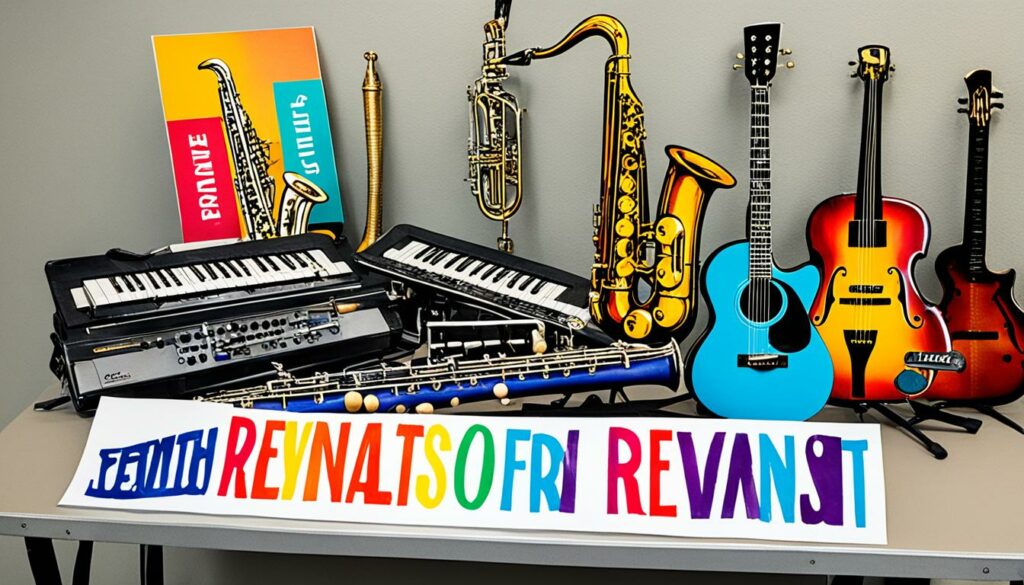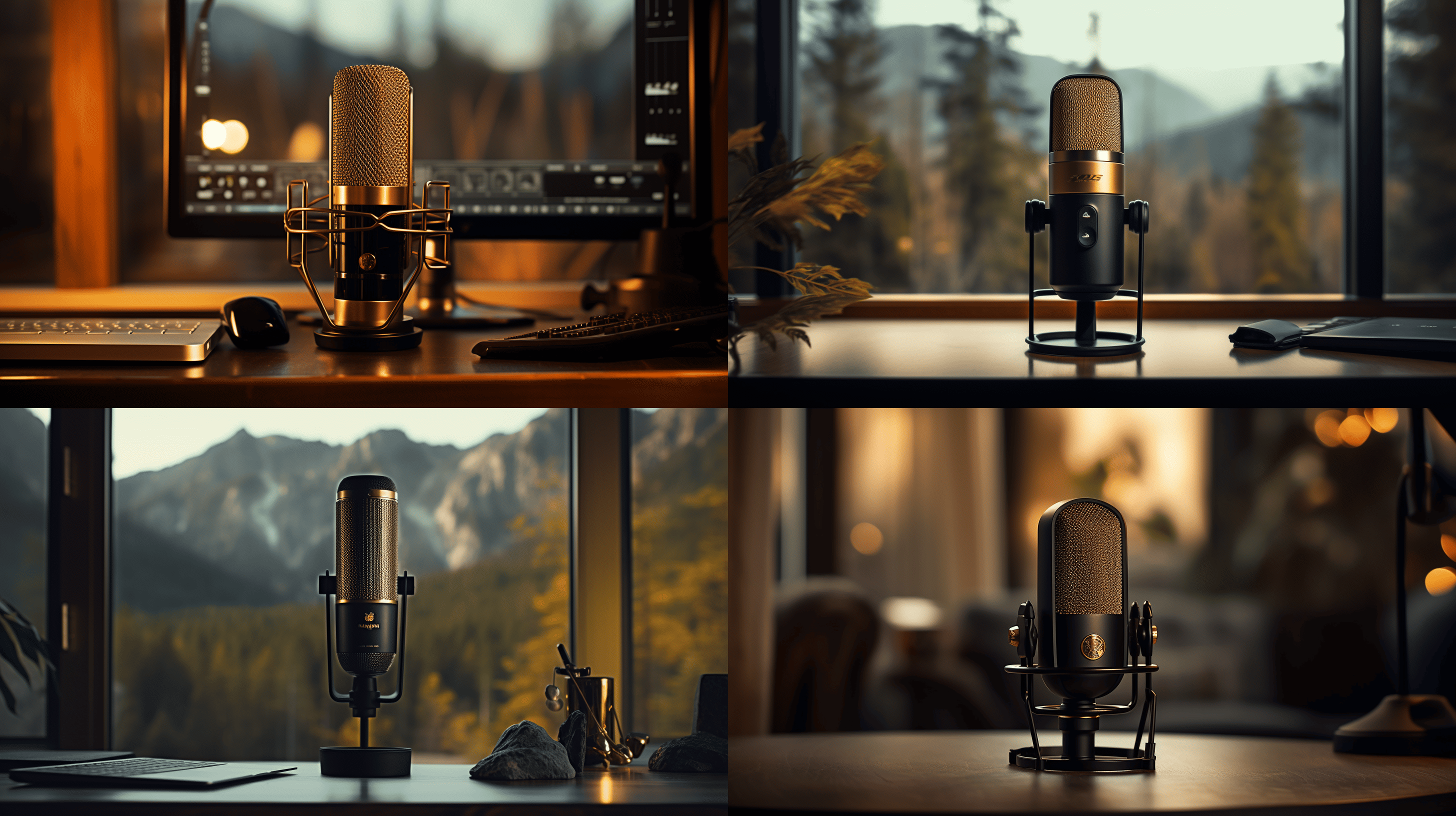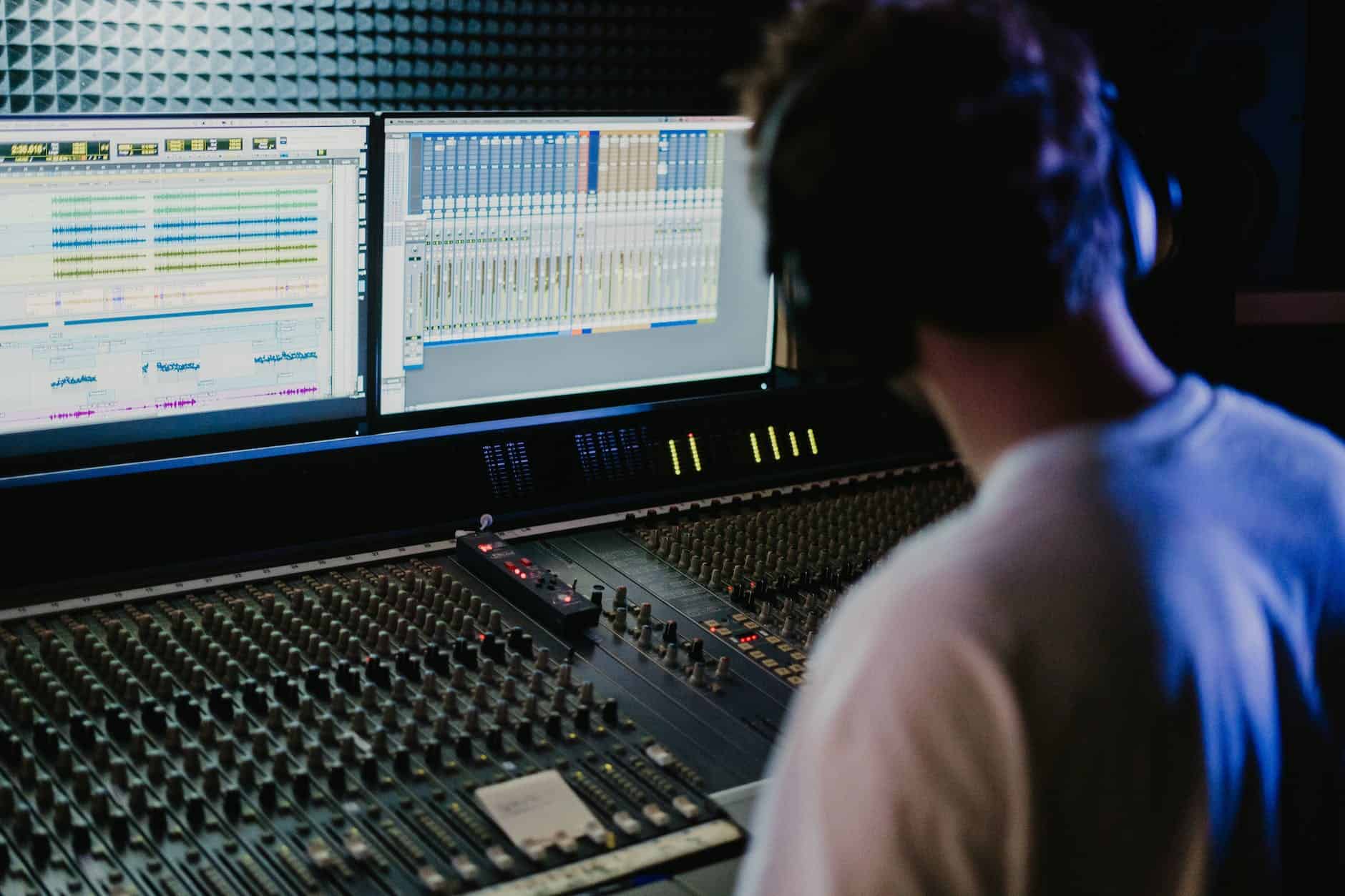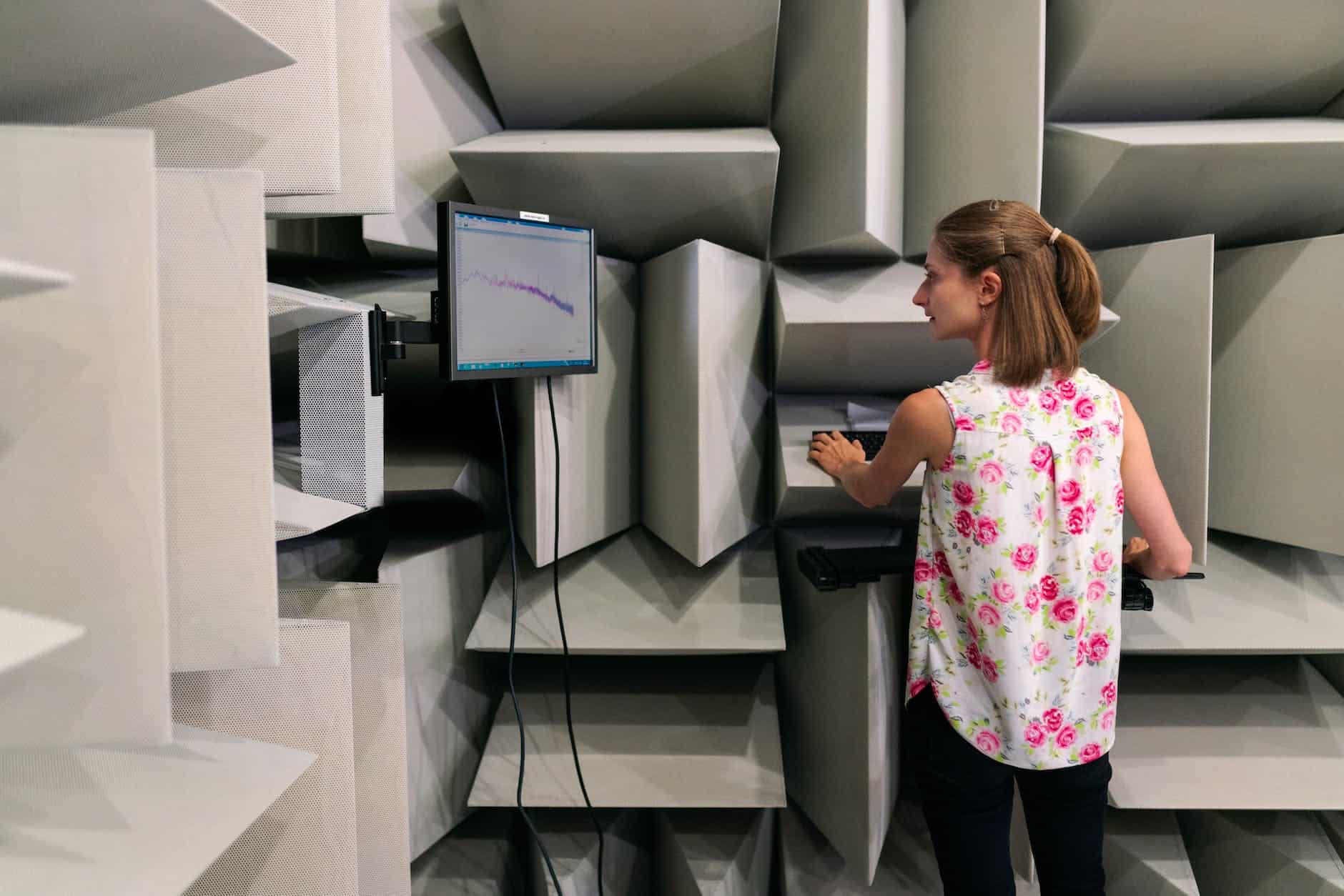Business
SEO for Composer and Producer – How to Reach More Customers

If you’re a composer or producer, you know how important it is to reach new customers. You also know how difficult it can be without the help of search engines. In this SEO report, we will show you how to improve your website so that you can reach more potential customers. We’ll also provide tips on generating more leads and increasing your revenue.
Search engine optimization (SEO) is achieving higher rankings by boosting your website’s visibility in search engines. It can be done in several ways. One way is by adding new content on your website. This may include music, blogs, behind-the-scenes videos, and more. Typically, a composer’s website will contain information about him or herself, a bio and demos section, credits, contact details, and a portfolio section.
SEO Report for Composer and Producer
The world of composer and producer SEO has changed over the last few years. In this article, we’ll explore some of the essential tips and tricks that will help you get more traffic to your music composition site.
Writing for SEO is not just about writing content that you think will be relevant for specific keywords. It’s about writing for your audience and focusing on the topics they want to read about. Writing for SEO means creating content that people will want to read and share with their friends, family, and colleagues. If people don’t engage with your content, then it doesn’t matter how many people find it through search engines – they’re not going to stick around long enough to see what else you have to say!
Know Your Audience
As a composer and producer, you already know that your audience comprises music lovers. But do you know who they are? What type of information do they want to read? How can you help them reach their goals? The answer lies in knowing your audience.
First, consider who your audience is and what they want to read. Then, deliver content that meets their needs by keeping these tips in mind:
- Know the demographics of your readership (age, gender).
- Create content that aligns with the interests of those people. For example, if most of your fans are young men who love rock music, then make sure whatever content you create has something related to that topic or genre associated with it!
Think about what kind of information your audience is looking for. Do they want to learn more about the music industry? Are they interested in tips on how to improve their mixing skills? Whatever it is, make sure you provide value in your content.
Finally, remember that people are always searching for helpful and informative content. So, make sure your content is well-written and free of errors. If you can do this, you’re on your way to writing SEO-friendly content that will help you reach more potential customers!
Now that we’ve covered the basics of writing for SEO, let’s move on to more specific tips for composers and producers.
As a Composer or Producer, You Need to Write for Your Customers
You must understand what your customers want from you as a composer or producer. Do they want someone who can help them with their songwriting? Are they looking for someone who can produce their album? Do they need someone who can do both?
Your website and social media channels should be full of content that answers these questions. You must show your potential customers that you are the expert they are looking for.
One way to do this is by writing blog posts that address their specific needs. For example, if you’re a producer, you could write a post about the different production services you offer and how each can benefit the artist.
If you’re a composer, you could write a post about the different ways you can help songwriters with their melodies or lyrics. By composing helpful content that addresses your customer’s specific needs, you’ll be helping them and showing them that you’re the expert they’re looking for.
Another way to show your customers that you’re the expert they need is by writing testimonials from past clients. These can be posted on your website or social media channels and serve as valuable proof that you’re the real deal.
Use Your Keywords in The Body of Your Article
You need to use your keywords in the body of your article. Keywords are essential for SEO but also crucial for your reader. Google and other search engines can find more relevant content by including keywords within your text and title tags.
Search engines use a variety of factors when ranking pages, such as the number of links pointing to a page from other websites, but there’s no doubt that keyword density is one factor used by Google (and other search engines) when determining how well a webpage fits with the user’s query.
When deciding what words or phrases to include in an article title or meta description tag, it’s best not just choose random words that sound good together: instead, try using some variation on what someone might type into their browser after seeing an ad promoting this type of thing (ex: “how do I become famous” instead of just “famous”).
Identifying Non-Brand Keywords
Non-brand keywords are searches that don’t include your business’s brand name. For example, if someone were looking for Nike shoes, they would likely type “Nike shoes” instead of “Nike shoes Zappos”. While this may sound confusing, this is how Google recognizes non-brand keywords.
When analyzing non-brand keywords, look for those that have a high search volume. This increases the chances of your ad being seen by a broad audience. For example, if you’re looking for a pair of running shoes, the ad for “running shoes” could be seen by 100,000 more people than an ad for “skora running shoes.” A non-branded keyword can help you increase brand awareness and attract new visitors to your website.
When starting a search engine optimization campaign, identify the non-brand keywords relevant to your business. Non-branded keywords don’t include the company’s name but are related to the products and services your business provides. These keywords can be targeted at every stage of the buyer’s journey, from the first step to the final phase of the purchase cycle. This way, you can reach more customers and build a reputation in the long run.
Search engines play a significant role in the discovery and engagement stages of the music marketing process. People interested in discovering a new band often search for brand-specific terms when they first hear about it. In contrast, those searching for “bike saddles” will likely use non-brand keywords.
Don’t Use Filler Content
Filler content is a waste of time and money. It does not help you convert readers into customers, but it does take up space that could be used for something more useful. Filler content is also not engaging or enjoyable to readers. If people read filler content and are not engaged in it, they will leave the page without taking action or learning anything new.
The goal of your website as an artist/composer/producer is not just to get people onto your site; it’s also about converting those potential customers into paying ones!
Write a Compelling Headline
A good headline can make all the difference in your composer and producer’s marketing efforts.
When writing a headline for your composer or producer website, focus on using keywords that reflect what kind of work you do, but don’t overdo it or you’ll look like an amateur. You want to strike the right balance between being descriptive and exciting so people will click through.
Consider using power words that create curiosity such as “seen,” “happen” and “experienced.” For example: “Our experienced team has seen this happen before” or “We’ve experienced this before.”
Headlines should not include question marks because they’re too informal and may put off some readers who are just looking at headlines to see if they want to read more.
Try out different versions until you find something that works well for both search engines and readers.
Include Relevant Images
Images are also great for adding style and visual interest to your page. The best pictures are relevant to the article, meaning they have something in common with your writing. For example, if you’re writing about the history of a symphony orchestra, it would make sense for your image to be an old picture of one — but not necessarily one from today.
This isn’t just about using images that fit your words; it’s also about choosing quality images over low-quality ones! You want people looking at your content, so don’t distract them with blurry or pixelated photos. If there aren’t any good options available online or through Google Images (which is usually the case), try asking friends and family members if they have anything suitable lying around their house that could work nicely as an illustration on your site — some people love having their names attached to their creations even after death!
It can help create more hype around specific topics too — this means more views on social media channels which leads back again into those five million impressions per month goal mentioned earlier.”
Make Use of Internal Links
Internal links are links from one page to another on your site. These should guide readers through your content and help them find exactly what they’re looking for. They also play a big role in helping search engines understand the structure of your site.
Use internal links to help search engines understand the importance of your site’s content—and ensure that you include them in every page, not just those with high rank or authority!
Building Backlinks
Building backlinks for composers and producers is vital to the success of their online careers. The best way to get started is to set quarterly goals. Set aside a few hours each week to work on link building. This will help your website rank for more keywords and give you a steady stream of traffic.
Composers and producers should include content on their websites that is unique and interesting to visitors. New content can consist of behind-the-scenes blogs, music, and videos. Ensure the content is easy to navigate and does not contain too many large files. Typically, a composer’s website will have a home page, bio, demos, credits, contact information, and a portfolio section.
Keep Sentence Structure Simple and Easy to Understand
- Keep sentence structure simple and easy to understand.
- Use short sentences, as well as simple words.
- Avoid using jargon or technical terminology unless it’s necessary for the reader to know it to understand the article.
- Don’t use passive voice.
Make Sure Your Articles Are Formatted Properly
As a composer and producer, you probably don’t want people to know that you’re using a word processor. You want them to think that you’re so talented and creative that even the most minute details of your work come from within, but such is not the case. If it weren’t for proper formatting of articles like this one, no one would read them or click on links!
You’re better off using something like Microsoft Word (or Notepad) or Google Docs with spell check and grammar check. Be sure to use correct punctuation when needed: periods at the end of sentences; commas in lists; semicolons between two ideas that aren’t complete thoughts yet (such as “I went to school” followed by “My dog ate my homework”).
And remember, capitalization matters too! Titles should always be capitalized (e.g., The Evolution Of Rock Music). In contrast, subtitles should only be capitalized at the beginning of sentences (e.g., How A Song’s Title Can Affect Its Success). Paragraphs should usually start with an indentation instead of just a line break—this makes your article easier for readers who skim through content quickly without reading every word carefully
How Do You Expect People to Read It if You Don’t Write for People
If you are a composer and producer, your writing must be for the people. How do you expect people to read it if you don’t write for people? Why do you want them to read it?
You should not be writing just to have content on your website or social media channels. There has got to be a purpose behind everything you register online as an artist or musician. You need to know exactly what your audience wants from reading what you have written about and understand who they are and where they are coming from before even putting pen to paper (or fingers on the keyboard).
If somebody goes out there saying things like “I am a composer” without taking the time needed to understand their audience first then this will lead to nothing but confusion among potential customers who may not understand what exactly they mean by being “a composer” and why they would want too use such service in their projects if there is no clear direction towards solving problems.
Optimizing Your Website For YouTube
If you’re a musician, optimizing your website for YouTube is a crucial part of your strategy. Not only is YouTube a powerful platform for viral content, but it can also help you become a successful music artist. Here are some tips to help you optimize your website for YouTube.
Use a browser plugin like Tubebuddy to speed up your website. This plugin has various features to make your website faster and easier. For example, it includes a keyword explorer, an automatic language translator, and automatic tagging suggestions. Additionally, it has a rank tracker for published videos. If you have a large website, you may consider using the web analytics platform Cyfe, which tracks page performance across all of its properties. It will also follow the sources of traffic to your website.
To make your website more appealing to YouTube users, you need to include links to your website and other related links on your website. Ensure your connection contains the “HTTP://” part, and place it in the first line of the description. You should also include a thumbnail image of your video, which is a full visual representation of the video. When shared across different platforms, the thumbnail image will be the first thing viewers see, so it is essential to make it attractive and exciting. YouTube allows up to three thumbnail images per video.
Using keywords in your video title will help you rank for your targeted keyword. However, remember that using keywords in your title is not always a guarantee that your video will rank. It’s best to use keywords that describe what the video is about and keep it to a maximum of 60 characters.
Creating a Fan Journey
Creating a fan journey is crucial in establishing yourself as a successful artist. Fans evaluate artists and their music based on a series of factors. Artists must entice fans to take the next step and get them on the journey by establishing strong branding and making them feel like they are an integral part of the artist’s life. This is important because it will help create a deeper relationship with the fans. For example, by getting their email addresses, artists can market their music and share more personal information.
A successful SEO strategy will focus on the fan journey’s Engagement, Purchase, and Retention phases. This strategy will also include Advocacy and Discovery strategies. There are free SEO guides available for composers and producers. These guides are practical and written with musicians in mind. Creating a fan journey can help you grow your audience and increase your revenue.
A fanbase is the backbone of every artist’s career. When fans like your music, they will buy it, attend your concerts, buy merch, and tell their friends about it. They will be the first to share your new music videos. They are your best asset. You need to get to know your fans and develop emotional connections.
Social media is an incredible asset when it comes to building a fanbase. It’s free and easy to use, which makes it easy to reach new fans. Start with your closest circle of friends. Start sharing links to your music with your friends and respond to comments. Include a call to action on every social post you make.
SEO Is the Process of Enhancing and Maintaining Visibility of Your Composer Website in The Search Engine Results Pages (SERP)
Composer and music producer SEO is the process of enhancing and maintaining the visibility of your composer’s website in the search engine results pages (SERP).
SEO is a broad term, and there are many aspects to it. At its core, SEO is about optimizing a website to rank better on search engines for keywords that are relevant to your business or brand. This can be done through content, technical optimization, link building, social media marketing, and more.
However, suppose you have a composer or music producer website and want it to be found by potential clients. In that case, you need more than just good content on your site—you also need good user experience (UX) design for desktop and mobile devices.
SEO Strategies Drive More Relevant Website Traffic
SEO is the process of improving your composer website’s visibility in the search engine results pages (SERP). SEO stands for Search Engine Optimization, which includes a wide range of strategies that help you get more visitors to your composer or producer site.
The main objective of implementing SEO strategies is to drive more relevant website traffic by improving the visibility of the composer or producer sites in SERPs. You can also use these strategies to increase brand awareness and increase engagement with existing users on social media platforms like Facebook, Twitter, and LinkedIn
Simplify the Process of Optimizing Web Pages
Simply put, it’s a process of optimizing web pages and other materials on your website so that search engines can easily find them. When this happens, your composer website will be shown as one of the search engine results when people type keywords related to your music composition practice.
For SEO to work for you, there are several things you need to know about SEO and how it works. You also need to know how much time is required for a search engine spider or robot (also known as a “bot”) on the Internet could read all contents on your composer websites and index them correctly so that they can show up among the top search results whenever relevant keywords are typed into any search engine by anyone in the world! This usually takes weeks or months depending on how popular the topic discussed in each article/page found on an individual web page.”
A Site with Better Seo for Composers Will Rank Higher on Serp, Hence More Visible to People Who Are Searching for Services You Are Offering
Search engine optimization, or SEO for short, is the process of improving your composer website’s visibility in the search engines. When your composer website is more visible, it will be shown as one of the search engine results when people type keywords related to your music composition practice.
This means you can get more people to visit your site by optimizing it for better SEO.
Many factors contribute to optimizing a composer website for search engines. Some of these factors include elements on-page factors including title tag, meta description, heading tags etc., off-page factors like backlinks, contextual links, internal links etc., User experience, branding and social media presence.
SEO for Google is a process of optimizing web pages and other materials on your website so that search engines can easily find them and index them accurately. When this happens, your composer website will be shown as one of the search engine results when people type keywords related to your music composition practice.
You Can Learn how To Apply Seo Strategies to A Composer or Producer Site
Music industry websites are often overlooked when it comes to search engine optimization. However, with a few tweaks, you can optimize your website for search engines and ensure that people looking for music composers or producers can easily find yours.
To learn how to apply SEO strategies to a composer or producer site, you need to understand what keywords are used in the music industry and how this differs from other sectors, such as law firms or restaurants. Music is an abstract concept; the most effective SEO strategy will focus on keywords related directly to musical terms rather than general terms like “law firm” or “restaurant.”
Once you know what kind of words are most relevant within your particular niche, create content around those words using them in the title tags and meta descriptions of each page on your site—and try not to repeat any single word more than once per page! This will help Google understand what type of information each page contains so that it can show relevant results when someone searches for specific types
Goals of an SEO Report
A SEO report for a composer or producer should contain KPIs to measure progress towards specific SEO goals. The KPIs should be relevant and particular to the audience. They can be business-related or operational. The report should answer the question: “Are we making progress towards our goals?” It should also identify KPIs and metrics to help the composer or producer determine if SEO tactics are working.
Metrics to Include in An SEO Report
The SEO report should analyze the website’s total traffic and break that down by source. It should also include a “users” metric, which tracks unique users. This can be determined through cookies or IP addresses. Another metric is pageviews, which track how often a page has been viewed.
Metrics should be chosen to help you communicate progress and success and should be correlated to your business goals. Selecting the right amount of metrics is essential, as too many will be confusing and lose the reader’s interest.
Tools to Track Metrics
If you’re a composer or producer, you can use tools to track metrics for your music productions. SoundCloud, for example, has its own metrics server, Prometheus, which is a trendy choice. This server can store billions of measurements, and it uses an alert manager to send you notifications when an incident occurs.
Resources to Help You Create An SEO Report
A report on SEO can be generated with the help of SEO tools. These tools provide actionable reports on various metrics related to website performance. They can also help you submit pages to Google’s index. You can also use these tools to check for errors and verify the health of your domain property.
SEO tools should include the ability to create customized reports. This way, you won’t have to manually input data every month. Another benefit of such a tool is that it allows you to assign client logins and share data. You can also schedule reports to be created at specific dates automatically.
SEO reports should focus on the intent of your target audience. Focusing on these metrics can optimize your website and gain credibility among your stakeholders. You can use reports to inform your team and CFO of the performance of SEO campaigns. You can also use them to provide updates and progress reports.
SEO reports provide a snapshot of your website’s performance on major search engines. They should include quantitative representations of domain metrics and give actionable insights on how to improve your website’s performance. Many SEO tools don’t tell you much, so it’s essential to have an SEO report that provides valuable information and actionable insights for your stakeholders.
Keyword research is an essential component of SEO. You must know which keywords are performing well and which are performing poorly. You also have to know the average position of your target keywords in search engines and which backlinks have the most authority. Backlinks are essential to your success, so your SEO report should include metrics like domain authority and new referring domains.
Conclusion
We hope this article has helped you to understand how SEO works for Composer and Producer.
Business
Retirement Income for Singers/Actors Explained
Explore diverse ways in which singers and actors can secure a steady income after stepping away from the spotlight and into retirement.

Did you know that many retired singers and actors continue to earn significant income long after their performing careers have ended? Yes, even after taking their final bow, these talented individuals have figured out how to make money in retirement as singers or actors. In this article, we will dive into the world of retirement income for performers and explore the various passive income strategies they use to maintain financial stability.
Retirement doesn’t mean the end of earning potential for singers and actors. Let’s explore how they can continue to thrive financially and enjoy the fruits of their labor well into their retirement years.
Key Takeaways:
- Retired singers and actors can secure a steady income through various methods.
- Residuals, teaching, coaching, endorsements, and passive income strategies are some of the ways performers can generate income in retirement.
- Financial planning, diversification of income streams, and understanding retirement benefits are crucial for long-term financial stability.
- A gold IRA can be a valuable investment option for retired singers and actors.
- Retirement is an opportunity for performers to pursue their passions and enjoy a balanced lifestyle.
Residuals for Performers
Residuals play a crucial role in providing income for actors and singers even after their initial performances or recordings. These residual payments are calculated based on specific factors such as the terms of the contract, the amount of time spent on the production, the type of production, and the markets in which the product is released.
Principal performers, such as lead actors or lead vocalists, are entitled to residuals as part of their contracts with production companies. However, background actors and singers typically do not receive residuals unless they are upgraded to a principal role.
It’s important to note that residuals are not paid for the initial release of a production but rather for subsequent uses of the production in different media markets. For example, if a TV show or a song is syndicated or licensed for streaming platforms or other markets, the performers can expect residual payments for each subsequent use.
The timing of residual payments varies depending on the type of release and the applicable union agreements. For television and film productions, residuals are often paid on a quarterly or semi-annual basis. On the other hand, musicians and singers may receive residuals for songs played on the radio or streamed online, with payments often made through performing rights organizations such as ASCAP or BMI.
Overall, residuals provide performers with a valuable source of income that can contribute to their financial stability even after their initial contributions have been made. This additional income allows actors and singers to continue receiving compensation for their work, making residuals an important aspect of the performing arts industry.

Example of Residuals Calculation for a TV Show
| Factor | Explanation |
|---|---|
| Tier | Different payment rates based on the tier (lead, supporting, or day performer) |
| Episode Type | Different rates for reruns, first-run syndication, streaming services, and international broadcasts |
| Market Size | Payments can vary based on the viewership and reach of the television market |
| Time Period | Residuals are typically paid for a certain number of years after the initial release |
This table provides a simplified example of how residuals for a TV show’s episode might be calculated. The specific rates and formulas used in the entertainment industry can be more complex, and individual union agreements may have additional factors and terms.
Education and Training for Musicians and Singers
Musicians and singers have various paths to enter their respective fields, with education and training playing a vital role in their development. While a formal postsecondary education may not be necessary for all musicians and singers, it can provide valuable skills and knowledge that contribute to their success. Let’s explore the different educational options and training methods available for aspiring performers.
Bachelor’s Degree in Music Performance or Theory
For those interested in classical music or opera, pursuing a bachelor’s degree in music performance or theory can be advantageous. This program provides comprehensive training in various musical styles and techniques, helping musicians and singers refine their skills and gain a deeper understanding of music theory.
During their undergraduate studies, students participate in ensembles, such as orchestras or choirs, gaining practical experience and exposure to live performances. They also receive instruction from experienced faculty members who guide them in honing their musical abilities.
Master’s Degrees in Fine Arts or Music
Some musicians and singers choose to pursue a master’s degree in fine arts or music to further enhance their knowledge and skills. These advanced programs offer specialized training in specific musical genres or performance techniques, allowing performers to delve deeper into their craft.
Master’s degree programs often provide opportunities for mentorship and collaboration with experts in the field. Students refine their technical abilities, explore advanced music theories, and develop a distinctive artistic voice.
Training and Practice
Whether or not musicians and singers pursue formal education, consistent training and practice are essential components of their development. Regular practice helps performers refine their technique, expand their vocal range, and develop their musicality.
Training can take various forms, such as vocal lessons, instrumental lessons, or participation in workshops and masterclasses. Many musicians and singers also join community choirs or bands, allowing them to gain valuable experience and build connections within the industry.
“Education and training provide a strong foundation for musicians and singers to succeed in their careers. While a degree may not be necessary for all performers, the knowledge and skills acquired through formal education can significantly enhance their musical abilities.”
Table: Types of Musical Education and Training
| Education/Training | Description |
|---|---|
| Bachelor’s Degree in Music Performance or Theory | Comprehensive undergraduate program focusing on music performance and theory, particularly beneficial for those pursuing classical music or opera. |
| Master’s Degrees in Fine Arts or Music | Advanced graduate programs providing specialized training in specific musical genres or performance techniques. |
| Training and Practice | Continuous practice and participation in vocal lessons, instrumental lessons, workshops, masterclasses, and community ensembles. |
Education and training play a crucial role in preparing musicians and singers for successful careers. While formal education can provide a strong foundation, continuous training and practice are equally important for performers to refine their skills and stay connected with the ever-evolving music industry.

Advancement and Qualities for Musicians and Singers
Advancement for musicians and singers is a key goal to establish a successful career and gain recognition in the industry. It involves various aspects, including building a strong network, honing skills, and effectively promoting oneself. Let’s delve into the qualities that performers must possess to excel in their musical journey.
Talent
At the core of any successful musician or singer lies exceptional talent. Possessing a natural aptitude for music and vocal abilities forms the foundation for advancement in this field. The quality of one’s voice, instrumental skills, and musicality contribute to creating a captivating performance that resonates with audiences.
Dedication and Discipline
Advancement requires a strong work ethic, dedication, and discipline. Musicians and singers must invest countless hours in practice, constantly striving to improve their craft. The determination to reach their full potential and consistently deliver outstanding performances sets them apart from others.
Interpersonal Skills
Building relationships and collaborating with others are essential for advancement. Musicians and singers often work with bandmates, producers, and other industry professionals. Possessing excellent interpersonal skills, such as effective communication, teamwork, and adaptability, fosters harmonious collaborations and opens doors to new opportunities.
Physical Stamina
Performing on stage or in a recording studio can be physically demanding. Musicians and singers must have the physical stamina to endure lengthy rehearsals, live performances, and rigorous touring schedules. Maintaining peak physical condition allows performers to deliver energetic and unforgettable performances.
Promotional Skills
In today’s digital era, promoting one’s music and performances is crucial for advancement. Musicians and singers need to effectively market themselves through social media, online platforms, and traditional marketing strategies. The ability to create compelling promotional content, engage with fans, and cultivate a strong personal brand enhances visibility and attracts new opportunities.
“Advancement for musicians and singers requires not only exceptional talent but also dedication, discipline, interpersonal skills, physical stamina, and effective promotional skills.”
Successful artists often seek guidance from agents or managers who specialize in advancing their careers. These professionals have extensive industry connections and are skilled negotiators, securing better opportunities and contracts for their clients.

By embodying these qualities and seeking professional guidance, musicians and singers can position themselves for greater advancement. Striving for excellence, cultivating relationships, and staying true to their artistic vision will pave the way towards success and recognition in the competitive world of music.
Equity for Actors and Stage Managers
The Actors’ Equity Association is a renowned labor union that represents professional actors and stage managers in the United States. This esteemed organization plays a crucial role in ensuring the welfare and rights of performers in the industry.
Actors’ Equity Association, commonly referred to as Equity, offers a wide range of benefits to its members. One of the primary functions of Equity is to negotiate fair wages and working conditions for performers. By advocating for better pay and improved standards, Equity strives to create a favorable environment for actors and stage managers.
Additionally, Equity provides health and pension plans, which are vital for the welfare and financial security of performers. These benefits help to safeguard the well-being and stability of actors and stage managers throughout their careers and into retirement.
Equity is governed by its members through a transparent and democratic process. Members have a voice in the decision-making processes of the organization through an elected council and regional boards and committees. This ensures that the interests of performers are represented and protected.
The association also plays a key role in negotiating and implementing contracts for different types of theaters and productions. These contracts govern the terms and conditions of employment, setting the standards for fair compensation and working conditions in the performing arts industry.
Equity goes beyond representing actors and stage managers; it actively supports service organizations that benefit performing artists. By providing resources and promoting collaboration, Equity strengthens the performing arts community and fosters the growth and development of its members.
Furthermore, Equity advocates for arts funding and legislation that benefits performing artists. The association recognizes the vital role that the arts play in society and works to protect and advance the interests of actors, stage managers, and other professionals in the performing arts industry.
Overall, the Actors’ Equity Association serves as a powerful union, advocating for the rights and well-being of actors and stage managers. It provides essential benefits, negotiates fair contracts, supports service organizations, and advocates for the arts. Through these efforts, Equity contributes to the growth and prosperity of the performing arts and ensures a bright future for performers.

Other Sources of Income for Retired Singers/Actors
Retired singers and actors have a variety of options for supplementing their income and diversifying their financial streams during retirement. In addition to residuals, which provide ongoing payments for past work, there are several passive income strategies that can be explored.
Teaching and Coaching
One way retired performers can continue to share their expertise and passion is by teaching music or acting. They can offer private lessons or become instructors at local schools, colleges, or community centers. By passing on their knowledge and mentoring aspiring performers, retired singers and actors can generate an additional income while staying engaged with their craft.

Retired performers can also work as vocal or acting coaches, helping individuals refine their skills and develop their artistic abilities. This can be done on a one-on-one basis or by conducting group workshops and masterclasses. Coaching can provide a rewarding experience while serving as a valuable source of income.
Endorsements and Sponsorships
Another way retired singers and actors can generate income is by leveraging their fame and brand through endorsements and sponsorships. Companies and brands are often interested in partnering with well-known performers to promote their products or services. By collaborating with relevant companies in their industry, retired performers can earn additional income while aligning themselves with brands that resonate with their values and interests.
Passive Income Investments
Retired performers can also seek to generate passive income by investing in different assets. Real estate can be a lucrative option, whether through rental properties or real estate investment trusts (REITs). By owning properties, retired performers can benefit from rental income and potential appreciation in property value.
Another passive income strategy is to invest in stocks, bonds, mutual funds, or other investment vehicles. These investment options can provide regular dividends or interest payments, helping to supplement retirement income. It’s important to work with a financial advisor to determine the most suitable investments based on individual goals and risk tolerance.
Monetizing Knowledge and Experience
Retired performers can monetize their knowledge and experience by writing books, creating online courses, or participating in speaking engagements. Authors can share their insights and stories through memoirs, self-help books, or educational resources. Online courses allow retired performers to teach their craft or share specialized knowledge with a global audience. Speaking engagements provide opportunities to share experiences and expertise at conferences, industry events, or workshops.

These various income sources can be combined to create a diversified portfolio of revenue streams. Retired singers and actors can choose the strategies that align with their interests, skills, and goals. By exploring these options, retired performers can secure a stable supplementary income while enjoying their retirement years.
Financial Planning for Retirement
Retirement savings for performers are crucial for ensuring financial stability during their post-performance years. Singers and actors need to plan and save for retirement just like any other profession. By working with financial advisors who understand the unique challenges and opportunities of the entertainment industry, performers can develop a solid financial plan.
Financial planning tips for artists:
- Set aside a portion of income regularly: One of the key financial planning tips for artists is to establish a habit of saving a portion of their income on a regular basis. By consistently setting aside money, performers can build a retirement nest egg over time.
- Invest in retirement accounts: Retirement investments for entertainers can include contributing to retirement accounts such as IRAs (Individual Retirement Accounts) or 401(k) plans. These accounts offer tax advantages and can help performers grow their retirement savings.
- Diversify investments: Diversifying investments is essential for managing risk and maximizing returns. Performers can consider investing in a mix of stocks, bonds, real estate, and other assets to create a well-rounded investment portfolio.
Performers face unique financial situations, including income fluctuations, irregular payment schedules, and potential gaps in employment. Therefore, it’s important for artists to work with knowledgeable financial advisors who can tailor their retirement planning strategies to meet their specific needs.
Retirement investments for entertainers
In addition to regular contributions to retirement accounts, performers can explore other retirement investments to supplement their savings. These may include:
“Investing in real estate properties can provide rental income and potential property appreciation. Dividends from stocks and bonds can also serve as additional sources of retirement income. Artists may also consider investing in mutual funds or exchange-traded funds (ETFs) to gain exposure to a diversified portfolio of assets.” Lawrence – Founder & Lead Strategist, The Liberty Portfolio
Retirement Savings Tips for Performers
| Retirement Savings Tips | Benefits for Performers |
|---|---|
| Set aside a portion of income regularly | Builds a retirement nest egg over time |
| Invest in retirement accounts | Offers tax advantages and helps grow savings |
| Diversify investments | Manages risk and maximizes returns |
By following these retirement savings tips and investing wisely, singers and actors can establish a strong financial foundation for their retirement years. It’s never too early to start planning and saving for retirement, as every dollar saved today can make a significant difference in the future.

Benefits of a Gold IRA for Performers
A gold IRA can be a valuable investment option for retired singers and actors. With a gold IRA, individuals can hold physical gold in their retirement accounts, providing them with a secure and tangible asset. This type of investment is a hedge against inflation and economic uncertainty, offering long-term stability to their retirement portfolio.
One of the primary benefits of a gold IRA is its potential for capital appreciation. Gold has historically maintained its value and even demonstrated periods of significant growth. By including gold in their retirement portfolio, performers can potentially benefit from the appreciation of this precious metal, helping them to grow their wealth over time.
A gold IRA also acts as a diversification tool for retirement savings. By diversifying their investment holdings, performers can reduce the risk of having all their assets tied to a single investment vehicle. Adding gold to a retirement portfolio can help protect against market volatility and provide stability, especially during periods of economic downturn.
To set up and manage a gold IRA, retired singers and actors can rely on reputable gold IRA companies. These companies specialize in assisting individuals in navigating the intricacies of gold IRA investments and ensuring compliance with all regulations. They provide professional guidance in selecting the right type of gold, facilitating the purchase, and securely storing the physical gold.
Benefits of a Gold IRA:
- Protection against inflation and economic uncertainty
- Potential for capital appreciation
- Diversification tool for retirement portfolio
- Secure storage of physical gold
- Professional guidance from reputable gold IRA companies
A gold IRA investment can offer retired singers and actors peace of mind during their retirement years. It combines the advantages of owning physical gold with the tax advantages and security of a retirement account. By considering a gold IRA, performers can safeguard their wealth, preserve their purchasing power, and strengthen their overall financial strategy in retirement.
| Gold IRA Benefits | Description |
|---|---|
| Hedge against inflation | Investing in gold helps protect against the eroding effects of inflation on the value of retirement savings. |
| Portfolio diversification | Gold provides diversification within a retirement portfolio, reducing the risk associated with having all assets in one investment class. |
| Capital appreciation | Gold offers the potential for long-term capital appreciation, providing a source of wealth accumulation in retirement. |
| Safe haven asset | During times of economic uncertainty, gold serves as a safe haven asset, maintaining its value or even increasing in price. |
| Tax advantages | Investing in a gold IRA provides potential tax benefits, such as tax-deferred growth or tax-free distributions, depending on the account type. |
With its numerous benefits and the assistance of reputable gold IRA companies, a gold IRA can be an excellent investment option for retired singers and actors looking to secure their financial future.

Managing Finances After Retirement
After retiring as singers or actors, it’s important to manage finances carefully. Creating a retirement budget can help ensure that expenses are covered and that money lasts throughout retirement. Retired performers should review their investments regularly and make any necessary adjustments to their retirement plan. They should also consider the impact of taxes on their retirement income and explore strategies to minimize their tax burden. Working with a financial advisor can provide valuable guidance in managing post-retirement finances.
Retirement budgeting for performers is an essential step in securing financial stability during retirement. By assessing income sources, including pensions, investments, and any residual income, performers can determine their monthly expenditure and allocate funds accordingly. A retirement budget helps to track expenses, identify areas for potential savings, and ensure that retirement funds are not depleted too quickly.
Reviewing and Adjusting Investments
Retired performers should regularly review their investments to ensure that they align with their financial goals and risk tolerance. Post-retirement financial planning involves reassessing the asset allocation of their investment portfolio and making any necessary adjustments. This may involve rebalancing investments to maintain a suitable mix of stocks, bonds, and other assets. It’s important to consider the potential impact of inflation on retirement savings and adjust investment strategies accordingly.
Managing retirement finances also involves evaluating individual investments’ performance and considering whether to make changes. Performers may consult with a financial advisor to help analyze investment options and make informed decisions about which investments are best suited for their retirement goals.
Minimizing Tax Burden
Retirement income may be subject to various taxes, including federal and state income taxes. Performers should carefully consider the tax implications of their retirement income and explore strategies to minimize their tax burden. This may involve taking advantage of tax-efficient investment vehicles, such as retirement budgeting for performers, which offer tax advantages that can help reduce overall tax liability in retirement.
Additionally, performers may benefit from consulting with a tax advisor to maximize deductions, credits, and other tax-saving opportunities. By taking proactive steps to manage their tax obligations, retired performers can potentially preserve more of their retirement income for their own financial needs.
Working With a Financial Advisor
Navigating the complexities of retirement finances can be challenging for performers. Working with a qualified financial advisor can provide valuable guidance and support in managing post-retirement finances. A financial advisor can help performers develop a personalized retirement plan, review investment strategies, navigate tax implications, and ensure that retirement funds are optimally allocated.
Performers should seek out a financial advisor with experience in managing finances in retirement for individuals in the entertainment industry. These professionals can offer specialized insights into the unique financial challenges and opportunities faced by retired performers, providing tailored strategies to help maximize their financial security and achieve their retirement goals.

Summary
Managing finances after retirement is a crucial aspect of achieving financial stability and peace of mind. By creating a retirement budget, regularly reviewing and adjusting investments, minimizing tax burden, and working with a financial advisor, retired singers and actors can effectively navigate the financial challenges of post-retirement life. Taking proactive steps to manage finances in retirement can ensure that performers can enjoy their retirement years with confidence and financial security.
Creating Additional Income Streams
Retired singers and actors have the opportunity to generate additional income by leveraging their other talents and exploring new interests. By diversifying their income sources, they can supplement their retirement savings and achieve financial stability during their golden years.
One option for retired performers is to start a small business. They can utilize their expertise and experience to offer services or products in areas such as vocal coaching, acting workshops, or performance consulting. Setting up a business allows them to share their knowledge and skills while generating income on their terms.
Monetizing hobbies is another way for retired singers and actors to create an additional stream of income. They can leverage their creative abilities to sell handmade crafts, artwork, or music online. Platforms like Etsy and eBay provide a marketplace for artists to showcase their products to a wide audience.
Retirement is the perfect time to pursue passion projects and turn them into profit. Whether it’s crafting, painting, or playing an instrument, incorporating these hobbies into a small business venture can bring both joy and financial rewards.
Freelance work is another avenue for retired performers to explore. They can lend their talents to various projects, such as voice-over work, acting gigs, or performing at special events. Websites like Upwork and Freelancer offer a platform for freelancers to connect with clients and find paid opportunities.
Earning Potential From Online Marketplaces
Online platforms and marketplaces provide retired singers and actors with a global reach. They can showcase their skills and products, attracting potential customers from all over the world. These platforms allow performers to establish their brand and generate income by reaching a wider audience.
| Online Marketplace | Key Features |
|---|---|
| 1. Etsy | Platform for selling handmade crafts, artwork, and customized merchandise |
| 2. eBay | Marketplace for buying and selling a wide range of products, including memorabilia and collectibles |
| 3. Fiverr | Platform for offering freelance services, such as voice-overs, music composition, and acting gigs |
| 4. Airbnb Experiences | Opportunity to host unique performing arts-based experiences for travelers |
Retired performers can leverage these online marketplaces to establish their online presence and gain exposure to potential customers. By maximizing the reach and impact of these platforms, they can turn their skills and hobbies into lucrative income streams.

Creating multiple income streams is essential for retired singers and actors to ensure financial stability in retirement. By exploring different opportunities, such as starting a small business, monetizing hobbies, taking on freelance work, and leveraging online marketplaces, they can diversify their income sources and secure a steady cash flow. Embracing these supplemental income strategies allows retired performers to enjoy their retirement years while keeping their finances healthy.
Social Security and Retirement Benefits
Retired singers and actors may be eligible for Social Security benefits based on their work history and earnings. Understanding how the Social Security system works and how benefits are calculated is crucial to maximize the amount received in retirement. It’s recommended that performers work closely with a financial advisor who specializes in retirement planning for artists and can guide them through the complexities of the Social Security system.
One important aspect to consider is the impact of claiming benefits early or delaying them. While performers can start claiming Social Security benefits as early as age 62, doing so may result in a reduced monthly payment. On the other hand, delaying claiming benefits until full retirement age (typically between 66 and 67, depending on the year of birth) or even beyond can result in higher monthly payments.
It’s also essential for retired performers to understand the potential taxation of their Social Security benefits. Depending on their total income, a portion of their benefits may be subject to federal income tax.
Due to the unique nature of performers’ income, which may include residuals, royalties, and sporadic earnings, it’s advisable to consult with a financial advisor who can help optimize Social Security claiming strategies based on individual circumstances. By working closely with professionals, retired singers and actors can make informed decisions that will maximize their retirement benefits and provide a solid foundation for their financial future.
Legacy Planning for Performers
Legacy planning is a crucial part of estate planning for singers and actors, ensuring that their assets are distributed according to their wishes and loved ones are taken care of after they have passed away. It involves creating a comprehensive plan that aligns with their values and goals. Singers and actors can also use this opportunity to incorporate charitable giving, supporting causes they care about even after retirement.
Why Legacy Planning Matters
Legacy planning allows performers to have control over their assets and determine how they will be distributed. It goes beyond simply writing a will and can include setting up trusts, designating beneficiaries, and establishing charitable foundations. By planning their legacy, singers and actors can ensure that their values and intentions are upheld, providing peace of mind for themselves and their loved ones.
Incorporating Charitable Giving
Charitable giving in retirement can be a fulfilling way for performers to give back to their community and support causes close to their heart. By including charitable organizations in their legacy planning, they can leave a lasting impact and continue to make a difference even after they are gone. Whether it’s donating a portion of their estate or establishing a charitable foundation, performers can choose to support the causes that matter to them.
Working with Estate Planning Professionals
Creating a comprehensive legacy plan requires the expertise of estate planning professionals who specialize in the unique needs of performers. These professionals can provide guidance on legal and financial matters, help navigate complexities, and ensure that all necessary documents are in order. By working with experts, singers and actors can ensure that their legacy plan is tailored to their specific circumstances and offers the maximum benefit for their loved ones and charitable endeavors.
Legacy planning is not just about distributing assets; it is the opportunity for performers to leave a lasting impact and create a positive change in the world even after retirement.
Health Insurance and Healthcare Costs in Retirement
Retirement brings about various financial considerations, including healthcare costs. For retired singers and actors, understanding health insurance options and managing healthcare expenses is crucial. Medicare often plays a significant role in providing healthcare coverage for individuals in retirement.
When planning for retirement, it’s essential to factor in healthcare costs and budget for potential medical expenses. Healthcare expenses can vary based on individual needs, so it’s important for retired performers to explore health insurance options that best suit their circumstances.
Medicare for Singers and Actors
Medicare is a federal health insurance program that provides coverage for individuals aged 65 and older, as well as those with certain disabilities or end-stage renal disease. It consists of different parts, each addressing specific healthcare needs.
Part A (Hospital Insurance): Covers inpatient hospital care, skilled nursing facility care, hospice care, and some home health care services. Most individuals receive Part A coverage without a premium if they or their spouse paid Medicare taxes while working.
Part B (Medical Insurance): Offers coverage for doctor visits, outpatient care, medical supplies, and preventive services. Part B requires a monthly premium, which is based on income.
Part C (Medicare Advantage): Includes Medicare-approved private insurance plans that offer additional benefits, such as prescription drug coverage, dental care, and vision services.
Part D (Prescription Drug Coverage): Provides coverage for prescription medications. Part D plans are offered by private insurance companies approved by Medicare.
Retired singers and actors should carefully review their healthcare needs and consider enrolling in the Medicare parts that best fit their requirements. It’s essential to understand the costs, coverage limitations, and enrollment periods associated with each part.
Exploring Health Insurance Options
In addition to Medicare, retired performers may also explore other health insurance options to supplement their coverage. Some individuals may choose to purchase private health insurance plans to complement their Medicare benefits.
It’s advisable for retired singers and actors to work with insurance professionals who specialize in healthcare for retirees. These professionals can provide guidance on available options and help performers navigate through the complexities of healthcare coverage.
Managing Healthcare Expenses
Retired performers should budget for healthcare expenses when planning for retirement. It’s important to account for premiums, deductibles, copayments, and other out-of-pocket costs associated with health insurance.
Additionally, individuals may consider setting up a health savings account (HSA) if they have a high-deductible health plan. HSAs allow individuals to save pre-tax dollars to be used for qualified medical expenses. Contributions to HSAs can help offset healthcare costs and provide tax advantages.
An insurance professional or a financial advisor can provide personalized guidance on managing healthcare expenses in retirement and help performers create a comprehensive plan that addresses their specific needs.
Ensure Adequate Healthcare Coverage in Retirement
Retirement is a time to prioritize overall well-being, including healthcare needs. Retired singers and actors should take proactive steps to ensure they have adequate healthcare coverage during their retirement years.
By understanding Medicare, exploring health insurance options, budgeting for healthcare costs, and working with professionals, retired performers can navigate the complexities of healthcare and find the most suitable coverage to meet their needs.

Maintaining a Balanced Lifestyle in Retirement
Retirement is an exciting phase of life for singers and actors, offering them the opportunity to pursue their passions and establish a balanced lifestyle. During retirement, it is important for performers to engage in activities that they love, allowing them to stay fulfilled and content. Exploring new hobbies, participating in volunteering efforts, and traveling to new destinations are all fantastic ways to make the most of retirement. By dedicating time to these activities, retired performers can create a sense of purpose and fulfillment in their daily lives.
It is equally important for retired singers and actors to maintain social connections. Building and nurturing relationships with friends and loved ones can have a positive impact on mental and emotional well-being. Social interaction provides a sense of belonging and support, reducing the risk of loneliness and isolation. Joining organizations or groups related to their interests, such as community theater groups or musical ensembles, can help retired performers stay connected with their artistic communities and form new friendships.
In addition to social connections, physical and mental well-being should also be prioritized in retirement. Regular exercise and staying active can help maintain physical health and vitality. Adopting a balanced diet and incorporating activities like yoga or meditation can contribute to overall wellness. Taking care of mental health through activities such as reading, learning new skills, or engaging in creative pursuits can also provide a sense of fulfillment and fulfillment.

In order to further enhance their retirement experience, retired singers and actors can also consider pursuing continued education or attending workshops and seminars related to their interests. This allows them to continue growing and learning in areas they are passionate about.
Benefits of Maintaining a Balanced Lifestyle in Retirement:
- Enhanced overall well-being and happiness
- Opportunity to pursue passions and explore new hobbies
- Staying socially connected and forming new relationships
- Maintaining physical health and vitality through regular exercise
- Promoting mental health through activities that stimulate the mind
- Continued personal growth and learning
Retirement is a time for singers and actors to savor their hard-earned break and immerse themselves in activities they love. By maintaining a balanced lifestyle that encompasses physical, mental, and emotional well-being, retired performers can truly make the most of their retirement years.
Conclusion
In conclusion, singers and actors have a range of options for generating income after retiring from their performing careers. They can rely on residuals from their past work, explore additional sources of income, and engage in strategic financial planning to ensure financial stability during retirement. Additionally, investments such as a gold IRA can provide a hedge against inflation and economic uncertainty.
Retired performers should work with professionals in the industry, stay informed about their benefits, and create a comprehensive retirement plan that aligns with their financial goals and aspirations. By diversifying their income streams, managing their finances effectively, and enjoying a balanced lifestyle, retired singers and actors can achieve a fulfilling and financially secure retirement.
It is crucial for retired performers to consider their long-term financial well-being and take proactive measures to secure their future. With the right strategies in place, singers and actors can embrace retirement with confidence, knowing that they have built a solid foundation for a comfortable and enjoyable post-performance life.
FAQ
What are residuals for performers?
What education and training do musicians and singers need?
What qualities and advancements are important for musicians and singers?
What is the Actors’ Equity Association?
What are other sources of income for retired singers and actors?
How can retired singers and actors plan their finances for retirement?
What is a gold IRA and how can it benefit retired performers?
How should retired performers manage their finances after retirement?
How can retired singers and actors create additional income streams?
Are retired singers and actors eligible for Social Security benefits?
What is legacy planning for performers?
How can retired singers and actors manage healthcare costs in retirement?
How can retired performers maintain a balanced lifestyle in retirement?
Business
Gold IRA Costs Uncovered: What You’ll Pay
Discover the expenses involved with a Gold IRA, from setup fees to annual charges. Learn what to expect and how to budget for your precious metals investment.

Did you know that the average American spends over $280,000 in retirement? Planning for a secure future is essential, and one way to diversify your retirement savings is through a gold IRA. But how much does a gold IRA cost? Understanding the pricing for a gold IRA is crucial before making any investment decisions.
Key Takeaways:
- Setting up a gold IRA involves common fees such as setup fees, annual account fees, storage fees, and transaction fees.
- The total cost of a gold IRA depends on factors like the custodian, account balance, and type of metals held.
- There are several strategies to minimize gold IRA fees, including shopping around for custodians and choosing lower-premium bullion.
- Investing in a gold IRA can provide diversification, hedge against inflation, and potentially reduce overall risk in your retirement savings.
- Before investing in a gold IRA, it’s important to carefully consider your investment goals, consult with a financial advisor, and evaluate different custodian options.
What is a Gold IRA?
A gold IRA is a self-directed retirement account that allows investors to hold physical gold and other IRS-approved precious metals. Unlike traditional paper-based investments like stocks and bonds, a gold IRA provides an alternative asset class for diversifying retirement savings.
To qualify for the tax benefits associated with a gold IRA, the precious metals must be stored in an IRS-approved depository and the account must be set up and administered by a trustee or custodian. This ensures compliance with IRS regulations and safeguards the integrity of the investment.
Investing in a gold IRA offers several advantages. Firstly, it allows individuals to hold physical gold and other precious metals, which can serve as a hedge against inflation and economic uncertainties. Secondly, it provides diversification within a retirement portfolio, reducing overall risk exposure. Additionally, the long-term value of gold and other precious metals has historically been resilient, making them attractive options for preserving wealth.
When choosing a gold IRA company, it is essential to select a reputable and trustworthy custodian. A reliable custodian will handle the account setup, administration, and secure storage of the precious metals, ensuring that you can confidently navigate the requirements and procedures associated with a gold IRA.
Common Gold IRA Fees
When considering a gold IRA, it’s important to be aware of the common fees associated with this type of investment. Understanding these fees will help you make informed decisions and manage your expenses effectively.
Setup Fees:
Also known as account opening or establishment fees, setup fees are typically charged by gold IRA custodians. These fees can range from $50 to $200, depending on the provider.
Annual Account Fees:
Annual account fees cover the costs of maintaining your gold IRA and fulfilling IRS reporting requirements. These fees ensure that your precious metal investments are safely stored and managed in compliance with the tax code. Annual account fees usually range from $75 to $300 per year.
Storage Fees:
Since the IRS does not allow individuals to store precious metals at home in a gold IRA, you’ll need to use an approved depository for storage. Storage fees typically depend on the value of your account and the location of the metals. On average, storage fees can range from about $100 to $300 annually.
Transaction Fees:
Transaction fees may apply when buying, selling, or transferring metals within your gold IRA. These fees cover the administrative costs associated with processing these transactions. Depending on the custodian, transaction fees can range from $20 to $100 per transaction.
To give you a better understanding, here’s a breakdown of the common gold IRA fees:
| Fees | Cost Range |
|---|---|
| Setup Fees | $50 – $200 |
| Annual Account Fees | $75 – $300 per year |
| Storage Fees | Average $100 – $300 annually |
| Transaction Fees | $20 – $100 per transaction |
It’s important to note that these fees may vary depending on the gold IRA custodian you choose. To make an informed decision, carefully review the fee schedules of different custodians and consider the total cost along with other factors such as reputation, customer service, and the investment options available.
Other Gold IRA Costs to Note
In addition to the account fees, there are other costs to consider when investing in a gold IRA. These expenses can impact your overall investment returns and should be carefully evaluated before making any decisions.
1. Premiums
When purchasing physical metals for your gold IRA, you may be charged premiums above the spot price of gold and silver. These premiums reflect the costs associated with manufacturing and distributing the precious metals.
2. Shipping and Handling Fees
Transporting your purchased metals to the approved storage facility incurs shipping and handling fees. These charges are necessary to ensure the safe and secure delivery of your precious metals.
3. Wire Transfer Fees
If you choose to fund your gold IRA with a wire transfer, you may be subject to wire transfer fees. These fees are typically charged by your financial institution for processing the transaction.
4. Distribution or Liquidation Fees
When the time comes to take a withdrawal from your gold IRA, you may encounter distribution or liquidation fees. These fees can apply to the process of converting your precious metals into cash or physically receiving the metals.
It’s important to consider these additional costs when calculating the overall expenses of investing in a gold IRA. By understanding the full spectrum of fees involved, you can make informed decisions about your retirement savings strategy.
| Cost | Explanation |
|---|---|
| Premiums | Above spot price charges for purchasing metals |
| Shipping and Handling Fees | Costs for delivering metals to storage facility |
| Wire Transfer Fees | Fees charged for funding the gold IRA |
| Distribution or Liquidation Fees | Charges when withdrawing metals or converting them into cash |
How Much Are Total Fees?
When considering a gold IRA, it’s important to understand the total costs involved. The amount you’ll pay for a gold IRA depends on several factors, including the custodian you choose, your account balance, and the type of metals you hold.
For smaller accounts, the initial setup fees typically range from $300 to $500 for the first year. Annual fees for these accounts can range from $200 to $300 per year thereafter.
On the other hand, larger accounts valued at over $100,000 may incur higher fees, which could exceed $1,000 per year.
It’s worth noting that the costs of a gold IRA tend to increase as your account balance grows. Therefore, it’s important to consider both the short-term and long-term costs when evaluating the affordability of a gold IRA.
| Account Size | Initial Setup Fees (First Year) | Annual Fees |
|---|---|---|
| Small (Less than $50,000) | $300 – $500 | $200 – $300 |
| Medium ($50,000 – $100,000) | $300 – $500 | $200 – $300 |
| Large (Over $100,000) | $300 – $500 | Exceeds $1,000 |
It’s important to consider these costs alongside other factors when making a decision about a gold IRA. By comparing fees across different custodians and evaluating the potential benefits of holding physical gold in your retirement portfolio, you can determine if the costs align with your investment goals.
Tips for Minimizing Gold IRA Fees
When it comes to your gold IRA, minimizing fees is an essential strategy to maximize your investment returns. Here are some tips to help you minimize gold IRA fees:
- Shop around for custodians: Not all custodians charge the same fees. Take the time to research and compare different custodians to find one with fee structures that align with your investment goals. Look for custodians that offer competitive pricing along with excellent service.
- Rollover existing retirement funds: Instead of funding a new gold IRA account, consider rolling over your existing retirement funds. By doing so, you can avoid the opening fees associated with new accounts.
- Choose lower-premium bullion: When purchasing physical metals for your gold IRA, opt for lower-premium bullion over collectible coins. Collectible coins often come with higher premiums, which can increase your upfront purchase costs. By choosing lower-premium bullion, you can limit your expenses.
- Consider non-segregated storage: If you’re comfortable with pooled metals, opting for non-segregated storage can help reduce storage fees. Non-segregated storage means your metals are stored alongside other investors’ metals, which can be a cost-effective option.
- Avoid overtrading: Every transaction in your gold IRA incurs fees. To minimize fees, be mindful of your trading activities and avoid excessive buying, selling, or transferring of metals. Limiting transactions helps keep costs down.
- Research fee waivers/reimbursements: Some custodians offer fee waivers or reimbursements as part of their promotions or partnerships. Take the time to research and compare custodians to find potential fee-saving opportunities.
By implementing these tips, you can minimize gold IRA fees and keep more of your investment working for you. Remember to always stay informed and make choices that align with your financial goals.
Is a Gold IRA Worth the Fees?
While a gold IRA involves greater expenses compared to a conventional IRA, many investors believe the benefits are worth it. Adding physical precious metals to a retirement portfolio can help diversify savings, hedge against inflation, and reduce overall risk.
Investing in a gold IRA allows you to hold tangible assets that have historically held their value and provided a reliable hedge against economic turmoil. Gold and other precious metals have maintained their purchasing power throughout history, making them a valuable long-term investment. By including a gold IRA in your retirement strategy, you can potentially benefit from the stability and growth offered by precious metals.
“A gold IRA is like an insurance policy for your retirement savings. It provides a way to safeguard your hard-earned money against market volatility and economic uncertainty. The fees associated with a gold IRA are a small price to pay for the peace of mind and potential financial protection it offers.”
When considering the worthiness of the fees associated with a gold IRA, it’s essential to choose a transparent and reputable custodian partner. Working with a custodian that offers competitive pricing and fee structures can help you minimize costs and maximize your investment returns. Look for custodians that provide clear pricing information and options that align with your financial goals.
Ultimately, whether a gold IRA is worth the fees depends on your individual investment objectives, risk tolerance, and long-term financial goals. It’s crucial to carefully evaluate the potential benefits and drawbacks and consult with a trusted financial advisor who can guide you in making an informed decision.

What to Consider Before Investing in a Gold IRA
Before you decide to invest in a gold IRA, there are several important factors to consider that can affect your investment cost and account fees. By carefully evaluating your investment goals, risk tolerance, and the amount you plan to invest, you can make an informed decision about whether a gold IRA is the right choice for you.
Choose the Right Custodian and Dealer
When investing in a gold IRA, it’s crucial to evaluate different custodian and dealer options, as fees can vary significantly. Research reputable custodians that specialize in precious metal IRAs and compare their fee structures. Look for custodians that offer competitive pricing and transparent fee disclosures.
Understand the Tax Implications
Before opening a gold IRA, it’s essential to be aware of the tax implications. Gold IRAs can be set up as either traditional IRAs or Roth IRAs, and each option has different tax considerations. Consult with a financial advisor or tax professional to understand which type of IRA aligns best with your retirement income needs and tax situation.
Consult with a Financial Advisor
Investing in a gold IRA is a significant financial decision. It’s always a good idea to consult with a financial advisor who is a fiduciary to determine if a gold IRA is the right fit for your individual financial situation. A fiduciary advisor will have your best interests in mind and can provide personalized guidance tailored to your specific needs.
Consider the Costs
Investing in a gold IRA comes with associated costs, including setup fees, annual account fees, storage fees, and potential transaction fees. It’s important to factor these costs into your investment plan. By choosing a reputable custodian and being mindful of fees, you can minimize the overall investment cost of your gold IRA.
Make an Informed Decision
Investing in a gold IRA can offer diversification and potential protection against inflation, but it’s crucial to make an informed decision that aligns with your long-term financial goals. Take the time to educate yourself about the options available and seek professional advice when needed to ensure you are making the best choice for your retirement savings.
Remember, investing in a gold IRA should be a strategic decision based on careful consideration of your investment goals, risk tolerance, and financial circumstances. By doing your due diligence and seeking professional guidance, you can determine if a gold IRA is the right investment vehicle for you.
Conclusion
In conclusion, investing in a gold IRA comes with costs that include setup fees, annual account fees, storage fees, and transaction fees. These expenses can vary depending on the custodian you choose and the types of metals you hold in your IRA account. To minimize these fees, it’s important to shop around for custodians, select lower-premium bullion options, and limit the number of transactions that incur fees.
Before making a decision, carefully consider your investment goals, risk tolerance, and retirement income needs. Consulting with a financial advisor who is a fiduciary can provide valuable guidance in determining if a gold IRA aligns with your overall financial plan.
In today’s market, the demand for gold IRAs and other precious metals IRA custodians has been steadily increasing. Many investors see the benefits of diversifying their retirement savings and protecting against inflation. However, it’s important to carefully evaluate the costs and benefits and choose a reputable custodian that offers transparency and fair pricing.
FAQ
What is a gold IRA?
What are the common fees associated with a gold IRA?
How much do setup fees typically cost?
What is the range for annual account fees?
How much are storage fees?
What are transaction fees?
Are there any other costs I should consider?
How much does a gold IRA cost in total?
How can I minimize gold IRA fees?
Is a gold IRA worth the fees?
What should I consider before investing in a gold IRA?
What is the conclusion about gold IRAs?
Business
Generative AI What Is It Good For

Introduction to Generative AI
Generative AI represents a revolutionary technology capable of changing our world in ways we can’t yet fully comprehend. At its core, this artificial intelligence category has the ability to create new content, including music, art, and text. It uses advanced deep learning algorithms to sift through extensive amounts of data, functioning autonomously without the need for human oversight or categorization.
Generative AI can be used to create unique creative works, or to make automated decisions about how a system should process information.
(Generative AI What Is It Good For was initially published at https://cybermediacreations.com on June 1st, 2023.)
Uses for Generative AI
Generative AI has immense potential applications across many industries. In the medical and health field, this technology could help automate diagnoses of diseases and provide more accurate predictions of treatments. It’s also being used to develop new products in the tech industry, like voice-interaction technology for virtual assistants.

Additionally, generative AI could generate original art and music, replacing traditional forms of creativity with machine-generated content. Finally, it’s being explored to automate business processes such as marketing campaigns or customer segmentation. We recommend also looking at this latest article published by AI Smasher: Experience the Future: How Generative AI Revolutionizes Media and Entertainment.
Impact and Applications of Generative AI
The effect of generative AI on society is profound. It has already demonstrated formidable capabilities in pattern matching and style transfer. For instance, this technology can take a photograph and modify it into a painting reminiscent of Van Gogh’s style.
Moreover, generative AI holds the potential to automate code writing, thus streamlining software development processes.

Generative AI also has the potential to revolutionize the creative industry by generating original works of art or music without any human intervention. This technology is currently being explored as a way to automate marketing processes, such as creating video ads for social media platforms. Furthermore, it could be used for automated customer segmentation and personalized product recommendations.
Generative AI is an incredibly powerful form of artificial intelligence with many applications across various industries. It holds immense potential in areas ranging from medical diagnosis and patient treatment to creative endeavors like painting and music composition.
Generative AI is already revolutionizing marketing processes and automating code writing, while its potential applications will only continue to expand in the near future.
Challenges and Limitations of Generative AI
Despite its remarkable capabilities, there are limitations that need addressing before complete automation becomes feasible. A significant challenge lies in the opaque nature of the technology due to its complexity. Fully understanding the intricacies of generative AI algorithms is often a hurdle for humans.
Another limitation is the technology’s relative inaccuracy in discovering new facts. Although generative AI shines in pattern recognition tasks, such as image classification or speech recognition, it may lack access to all necessary information when making decisions requiring human-level discernment.

Finally, reliability is a concern that needs improvement before full automation can consistently occur. Generative AI systems require superior calibration and validation to effectively replace human judgment.
Generative AI and Business Impact
The influence of generative AI on businesses will be significant in the coming years. Approximately 25% of the US workforce could have around 75% of their tasks impacted by this technology’s growth. Partial or full automation could lead to exponential growth for companies that successfully integrate this approach.
AI in Research and Its Limitations
Furthermore, researchers are utilizing artificial intelligence (AI) techniques, like machine learning (ML), to assist in research. However, it cannot supplant human intelligence yet, as humans excel in areas such as creativity and intuition that necessitate subjective judgments, rather than purely objective ones. This also helps prevent AI from becoming too dominant.
The Potential and Future of Generative AI
Generative AI is a technology with immense potential. It has already demonstrated considerable strength in pattern matching and style transfer, but it also has limitations that need addressing before full automation can reliably occur. Its impact on businesses and research is significant and holds the potential to revolutionize these fields completely. As we delve further into this book, we will scrutinize the strengths and weaknesses of generative AI more closely and consider its overarching impact on society.

Strengths of Generative AI
Generative AI, or Creative AI, is a subset of artificial intelligence with the capability to produce new content by studying and learning from pre-existing data. This technology has evolved significantly over recent years and is currently used across various sectors to automate tasks that were once exclusive to humans. This chapter will delve into the strengths of generative AI and its transformative impact on the world.
Unsupervised Learning and Data Processing
One of the paramount strengths of generative AI lies in its capacity to process vast volumes of unlabeled data. Traditional machine learning algorithms necessitate labeled data for learning, which can be costly and time-intensive to acquire. Generative AI circumvents this requirement by employing unsupervised learning techniques, thus enabling it to scrutinize raw data in real-time.
Pattern Matching and Style Transfer
Another notable strength of generative AI is its efficacy in pattern matching and style transfer. With generative AI, it’s feasible to train a model on one dataset and then apply it to a completely different dataset with similar features. For instance, a model trained on images of cats can generate images of dogs exhibiting analogous poses or backgrounds.
Coding Automation Potential
Furthermore, generative AI holds potential in code writing. By training a model on existing code repositories, developers can utilize generative models for automated coding tasks such as debugging or feature generation.
Weaknesses to Be Addressed
Notwithstanding these strengths, there exist several weaknesses linked to generative AI that must be resolved before achieving full automation. One such weakness is the lack of transparency stemming from complexity. The models generated by this technology are often intricate and difficult to interpret, making it tough for humans to discern how these models reached their conclusions.
Another weakness pertains to inaccuracies in discovering new facts. While generative models excel at creating new content based on existing data patterns, they struggle with identifying entirely new information that they’ve not encountered before.
Lastly, reliability remains a concern that requires improvement before achieving automation. Despite their ability to process massive quantities of data, generative models are susceptible to errors, and their reliability must be enhanced before they can be entirely trusted for automated tasks.
Economic Impact and Business Applications
The effect of generative AI on businesses and economic activities is profound. As per Cyber Media Creations, roughly 25% of the US workforce could see about 75% of their tasks influenced by generative AI in the coming years. This shift could usher in exponential growth through full automation rather than partial automation.
Role in Research
Generative AI is also making significant progress in research. While it’s not ready to entirely supersede human intelligence, it has the potential to assist with research tasks such as analysis and data processing at a rate faster than what humans can achieve alone. However, humans retain a crucial role in preventing AI from becoming excessively powerful or dominant over other sectors.
A Promising Future with Generative AI
Generative AI is a fascinating field that’s revolutionizing the world in numerous ways. Its strengths encompass its capacity to process large volumes of unlabeled data, perform pattern matching and style transfer, and the potential for automated coding tasks.
However, challenges such as a lack of transparency due to complexity and reliability issues need to be resolved before full automation is viable. The impact on businesses and economic activities is considerable, and it shows promising prospects in supporting research endeavors with human assistance while circumventing dominance over other sectors.
Weaknesses of Generative AI
While generative AI continues to make remarkable advances, it carries inherent weaknesses. This chapter aims to discuss the shortcomings of this technology and the areas of improvement required before achieving full automation.
Lack of Transparency
One significant challenge with generative AI lies in its lack of transparency due to its complexity. The algorithms, though capable of handling enormous quantities of data, are often difficult to comprehend in terms of how they reach their conclusions. This lack of transparency can make it difficult for humans to place trust in the outputs generated by these systems.

Limited Novelty Discovery
Another weakness of generative AI is its failure to accurately discover new facts. Despite its prowess in pattern matching and style transfer, the technology encounters difficulties when dealing with novel situations or information, rendering it less suitable for tasks demanding creativity or innovation.
Reliability Concerns
Reliability is another issue that must be resolved for generative AI to realize its full potential. As with any machine learning system, there’s a risk of bias infiltrating the algorithms if they’re not rigorously monitored and tested. Additionally, potential errors in the data or models employed by these systems could lead to inaccurate outputs.
Impact and Potential Amid Weaknesses
Despite these weaknesses, there are numerous ways in which businesses and researchers can benefit from utilizing generative AI. For instance, Cyber Media Creations predict that about 25% of the US workforce could have around 75% of their tasks influenced by generative AI in the coming years. This suggests that businesses that invest in this technology early on could gain a substantial advantage over their competitors.
The potential for exponential growth through full automation rather than partial automation is also significant. By automating entire workflows instead of just individual tasks, companies can garner even greater benefits from this technology.
The Human-AI Collaboration in Research
Regarding the use of AI in research, numerous opportunities exist for collaboration between humans and machines. Although AI can assist in certain aspects like data analysis and pattern recognition, it is incapable of completely replacing human intelligence. The rapid progress in this field is also a testament to the vital role humans play in preventing AI from becoming excessively dominant.
Potential Amid Challenges
While generative AI does possess certain weaknesses that need addressing, the potential benefits of this technology are vast. From boosting business efficiency to accelerating scientific progress, there are numerous ways in which generative AI can contribute to improving our world. However, it is crucial to proceed cautiously and ensure these systems undergo rigorous monitoring and testing to prevent negative outcomes.
Impact on Businesses and Economic Activity
Generative AI, with its accelerating advancements, is leaving a significant footprint on businesses and economic activity. Cyber Media Creations predict that approximately 25% of the US workforce may see around 75% of their tasks influenced by generative AI in the coming years.
Profound Impact Across Various Sectors
The wave of automation propelled by generative AI is poised to reshape numerous industries. For instance, in manufacturing, robots have already replaced humans in executing repetitive tasks. Retail has seen the rise of chatbots handling customer service queries, and in healthcare, AI is assisting in the early detection of diseases.

The potential for exponential growth through full automation as opposed to partial automation stirs up excitement among experts, looking forward to the possibilities that generative AI holds. However, apprehensions linger about how this automation shift will affect the job market and the workforce.
Job Displacement Concerns
While it’s evident that generative AI has the potential to enhance efficiency and reduce business costs, concerns about job displacement persist. As automation takes over more tasks, job opportunities for human workers may diminish.
Moreover, not all job roles can be effortlessly replaced by machines. Certain roles demand a level of human creativity or empathy that an algorithm cannot replicate. For example, while an AI system might craft a news article based on data inputs, it may fail to capture human experience nuances or provide insightful commentary.
The Future with Generative AI
Despite these concerns, generative AI’s role in shaping our economy and society in the future years is undeniably significant. As more businesses embrace these technologies and integrate them into their operations, new opportunities are likely to emerge for workers and entrepreneurs alike.
Generative AI in Finance
Finance is one potential area where generative AI could leave a substantial mark. With its ability to process colossal data quantities and identify patterns, AI could assist financial institutions in making more informed investment decisions and reducing the risk of financial crises.

Nonetheless, concerns about AI systems’ reliability in making critical financial decisions exist. History has shown that even the most sophisticated algorithms can sometimes fail to accurately predict market trends or identify potential risks.
A Transformative Force with Challenges
Overall, generative AI has the potential to bring about significant transformations to our economy and society. While there are definite challenges and concerns to address, excitement is equally palpable about the opportunities these technologies bring. As we continue to discover new applications for generative AI and find ways to integrate them into our businesses and daily lives, we are likely to witness even more innovative uses emerge in the future years.
Using AI in Research
Generative AI’s rapid evolution has significantly influenced research practices. AI’s capacity to swiftly and accurately process vast amounts of data has revolutionized many research disciplines, enabling the analysis of larger data sets and revealing previously obscured insights.
However, it’s worth noting that while AI offers substantial assistance in research, it hasn’t reached the stage where it can fully replace human intelligence. Aspects such as human intuition and creativity remain integral to the research process, and there remain tasks that only humans can perform.
Despite this limitation, the potential benefits of integrating AI in research are substantial.
Speeding Up Data Analysis
One major advantage is the speed at which data can be analyzed. Traditional methods of analyzing large datasets could span months or even years, posing a significant hurdle for researchers. However, with AI, these analyses can be executed much more rapidly – in some instances, within hours or even minutes.
Identifying Patterns and Relationships
Another advantage is AI’s ability to discern patterns and relationships within data that may not be immediately recognizable to human researchers. By analyzing copious amounts of intricate information, AI algorithms can identify correlations and connections that would be challenging or impossible for humans to discern independently.

Risks of Using AI in Research
However, as with any potent tool, risks are associated with implementing AI in research. One concern is the potential for bias or inaccurate results due to limitations in the algorithm or dataset employed. Moreover, there is always the risk of an algorithm “overfitting” its training data, meaning it becomes excessively specialized on a particular dataset and performs poorly on new data.
These risks underscore the need for continued human involvement in research, even as we incorporate more advanced technologies like generative AI into our methodologies. Although machines may be equipped to analyze massive amounts of data rapidly and accurately, they lack human judgment and creativity – two fundamental elements for truly groundbreaking discoveries.
The Potential Benefits and Future Implications
Ultimately, as we continue to advance and refine AI algorithms, the potential benefits for research are enormous. From uncovering new insights into disease and genetics to the discovery of new materials or the development of more efficient energy sources, AI has the potential to revolutionize how we approach research across numerous fields.

Moving forward, it will be crucial to strike a balance between AI’s power and the human touch that remains indispensable for truly revolutionary discoveries. By harnessing the strengths of both humans and machines, we can unlock even greater potential for scientific progress in the future.
Generative AI What Is It Good For FAQ
What is Generative AI?
Generative AI is a subfield of artificial intelligence that involves training a computer algorithm to generate new content such as text, images, or even music. This is achieved by inputting large amounts of training data into the algorithm, which learns to identify patterns and generate new content based on these patterns.
What are some use cases for Generative AI?
There are numerous potential use cases for Generative AI. One of the most well-known is the creation of chatbots such as ChatGPT, which use natural language processing to interact with users. Generative AI could also be used to create new written or visual content, or even to generate new music or other forms of creative output. There are also many potential applications in fields such as healthcare, where Generative AI could be used to accelerate the development of new drugs or medical treatments.
How does Generative AI work?
Generative AI works by using machine learning algorithms to analyze training data and learn underlying patterns. Once these patterns have been identified, the algorithm can generate new content based on the learned patterns. For example, a Generative AI language model could analyze a large dataset of text and learn to generate new sentences based on the patterns it has identified in the data.
What are some generative AI tools?
There are many Generative AI tools available, including language models such as OpenAI’s GPT series and image generation tools such as DALL-E. These tools rely on sophisticated AI algorithms and natural language processing techniques to generate new content based on training data.
What are some limitations of Generative AI?
Despite its potential, Generative AI also has some limitations. One major challenge is that Generative AI systems can sometimes generate output that is biased or offensive, particularly if the training data is biased in some way. Additionally, Generative AI systems can sometimes generate output that is nonsensical or even outright incomprehensible.
What are some advantages of Generative AI?
Despite its limitations, there are still a lot of advantages of Generative AI. One major advantage is that it can be used to generate new content quickly and efficiently. Additionally, Generative AI systems are able to produce output that is based on existing data or trends, which can give businesses an edge in navigating changing markets. It also allows for creativity by allowing users to explore different options and generate new ideas. Lastly, Generative AI can be used to automate mundane tasks such as data collection or document organization, which relieves time-consuming manual labor. In short, Generative AI provides businesses with an efficient means of creating new content and automating routine tasks.
Conclusion
Throughout this artciel, we have explored the world of generative AI and its impact on society. We have discussed its strengths and weaknesses, how it can affect businesses and economic activity, and the potential for using AI in research. Now, as we come to a close, it’s time to summarize our thesis on generative AI.
Generative AI has immense potential for changing the world as we know it. With its ability to process huge amounts of data without labels and its success in pattern matching and style transfer, there is no denying this technology’s power. Furthermore, with the potential for writing code through machine learning algorithms, there is no limit to what can be achieved.
However, with that power comes great responsibility. The complexity of generative AI means that issues surrounding transparency and accuracy need to be addressed before automation can occur safely. While around 25% of the US workforce could have around 75% of their tasks affected by generative AI in the next few years, according to Cyber Media Creations, full automation must be approached with caution.
One area where generative AI has shown promise is in research. While not yet able to fully replace human intelligence, it has already made significant contributions in fields such as medicine and environmental science. However, progress must continue at a pace that ensures humans still play a role in keeping AI from becoming too powerful.
In conclusion, Generative AI shows us that while there are many exciting possibilities for generative AI technology, we must approach these advancements responsibly and ensure they serve humanity rather than hinder us. It’s important to continue exploring the strengths and weaknesses of this technology so that we may find ways to maximize its positive impact on society while minimizing any negative consequences.
As we move forward into an ever-changing technological landscape filled with new advancements every day- let us remember our humanity and strive to use these tools to better our world.
(Generative AI What Is It Good For was initially published at https://cybermediacreations.com on June 1st, 2023.)
-

 Microphone1 week ago
Microphone1 week agoUnleash Your Inner Podcaster: Discover the Best Microphone for Crisp, Clear Audio
-

 Music Theory2 weeks ago
Music Theory2 weeks agoUnlocking Nature’s Harmony: The Power of 432 Hz Frequency in Sound & Music for Enhanced Living and Well-Being
-

 Sound Design2 weeks ago
Sound Design2 weeks agoWhat Is the Difference Between a Sound Engineer and A Sound Designer?
-

 Native Instruments Kontakt2 weeks ago
Native Instruments Kontakt2 weeks agoVOCAL AI – Animated Intelligence: The Ultimate Vocal Playground
-

 Sound Design2 weeks ago
Sound Design2 weeks agoWhy Sound Engineer
-

 Composing1 week ago
Composing1 week agoMUTILATED NOISE by SampleTraxx: The Next Generation Sound Collection
-

 Expert Guides2 weeks ago
Expert Guides2 weeks agoHow Do You Become a Sound Designer
-

 Expert Guides2 weeks ago
Expert Guides2 weeks agoHow to Become a Sound Designer for Film












